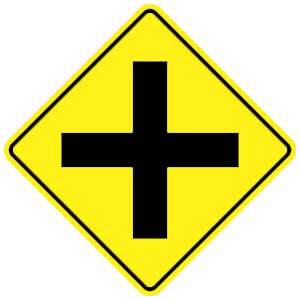Motorcycle Test | License NJ 2026 | FREE Online Practice! #10
Take this FREE motorcycle test (license in NJ 2026) to check your knowledge of the road rules. To improve your results, download a motorcycle handbook online, study theory, and practice for free on our website. Still worried about how to get a motorcycle license in New Jersey in 2026? Check our website for more sample tests, train as much as possible, and boost your grades!
1 . A good way to handle tailgaters is to:
The best way to handle a tailgater is to change lanes and let them pass you. Speeding up may cause them to tailgate you at a higher speed, only increasing the danger.
2 . Before mounting the motorcycle, your pre-ride inspection should include all of the following, except:
A pre-ride inspection should include checks of the tires, oil and fluids, lights, signals, clutch, throttle, mirrors, brakes, and horn. Conduct a thorough pre-ride inspection before every ride.
3 . When may a motorcyclist pass between two cars traveling in the same direction?
Motorcyclists must obey all traffic laws, signs, and signals in the same way as other drivers. Motorcyclists are prohibited from passing between two other vehicles going in the same direction unless there is an unobstructed traffic lane available to permit safe passing.
4 . A proper lane position should do all of the following, except:
A properly chosen lane position should provide a number of benefits, including an increased ability to see others and to be seen. It should help you avoid wind blasts, other drivers' blind spots, and surface hazards. Your lane position should discourage other drivers from trying to share your lane and provide you with an escape route, should a hazard arise.
5 . When traveling on a motorcycle with a sidecar, the passenger should ride:
If your motorcycle has a sidecar, it is best for your passenger to ride in the sidecar. They should keep their hands inside the sidecar at all times.
6 . This road sign means:

This sign means that you are approaching an upcoming intersection. Watch carefully for cross traffic.
7 . Rain suits:
High-quality rain suits designed for motorcycle riding will resist tearing and ballooning when a rider travels at high speeds.
See the exact questions that will be on the 2026 New Jersey DMV exam.
99.2% of people who use the cheat sheet pass the FIRST TIME
Jeneen was tired of paying $5/gallon. She got herself a scooter that required the motorcycle license. She studyed the motorcycle test cheat sheet and passed her test the next day!
Christopher tells us how he knew nothing prior to obtaining the motorcycle study guide, and he only got one question wrong because he clicked on the wrong answer by mistake.



